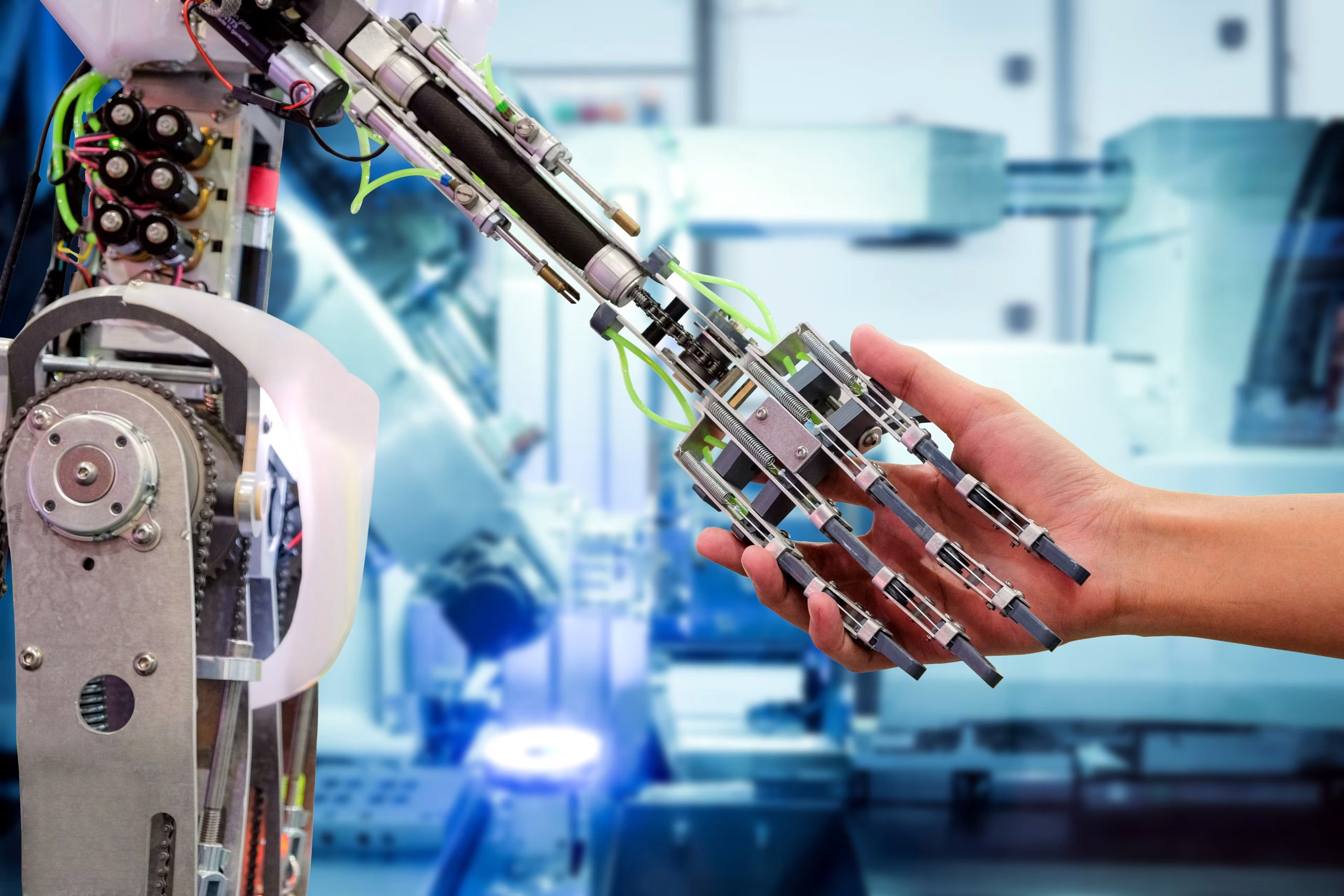In the rapidly changing world of commerce, the future of business is being shaped by three major forces: technology, sustainability, and human values.
In the rapidly changing world of commerce, the future of business is being shaped by three major forces: technology, sustainability, and human values. While innovation and digital transformation continue to revolutionize industries, businesses are also being challenged to operate more responsibly and empathetically. Success today is no longer measured solely by profit margins, but by a company’s adaptability, social impact, and long-term vision.
As we move deeper into the digital era, businesses that thrive will be those that embrace change — not as a disruption, but as an opportunity to redefine what success means in the modern economy.
1. The Age of Digital Transformation
Technology has become the cornerstone of modern business strategy. From artificial intelligence (AI) and automation to blockchain and data analytics, digital tools are reshaping how companies operate, communicate, and serve their customers.
Artificial intelligence, for example, is enabling smarter decision-making through predictive analytics, allowing businesses to anticipate consumer behavior and optimize operations. Automation is increasing efficiency across sectors, freeing employees from repetitive tasks and allowing them to focus on creativity and problem-solving. Meanwhile, blockchain technology is improving transparency in supply chains and enhancing data security — critical factors in a world where trust and integrity are key.
However, digital transformation isn’t just about adopting new tools; it’s about fostering a digital mindset. Companies that invest in employee training and digital literacy are better positioned to adapt and innovate. As industries continue to evolve, digital agility will define the next generation of successful enterprises.
2. The Rise of Sustainable Business Practices
Sustainability has transitioned from a marketing buzzword to a business imperative. With growing environmental awareness and stricter regulations, companies are now expected to operate in ways that respect the planet and society. Consumers are more conscious of where their products come from, how they’re made, and what impact they have on the environment.
From renewable energy investments to circular economy models, sustainability is being integrated into every part of business operations. Companies like Patagonia, Tesla, and Unilever are leading the way by prioritizing ethical sourcing, reducing carbon footprints, and promoting transparency.
Moreover, sustainability isn’t just good for the planet — it’s good for business. Studies show that environmentally responsible companies attract more loyal customers, investors, and top talent. In fact, corporate social responsibility (CSR) has become a vital part of brand identity and reputation management.
The shift toward green innovation — designing products and processes that minimize waste and maximize efficiency — is driving competitiveness in industries ranging from fashion to manufacturing. The businesses of the future will be those that can combine profit with purpose.

3. The Human-Centered Business Model
While technology and sustainability are critical, the third pillar of modern business success is human connection. In an age dominated by screens, algorithms, and automation, companies are realizing that genuine human engagement remains their most valuable asset.
The rise of the “experience economy” — where consumers value meaningful interactions over mere transactions — has pushed businesses to focus on customer experience (CX) as a competitive differentiator. Personalization, empathy, and authenticity now play key roles in brand loyalty.
Internally, businesses are also redefining the workplace experience. Remote and hybrid work models have changed how teams collaborate and communicate. Flexibility, work-life balance, and mental well-being have become top priorities for employees — and companies that adapt to these expectations enjoy higher productivity and retention.
Forward-thinking leaders are recognizing that employee happiness is directly linked to customer satisfaction. Investing in company culture, professional development, and inclusivity is no longer optional — it’s essential for long-term growth.
4. Entrepreneurship in the Modern Era
The entrepreneurial landscape has transformed dramatically over the last decade. Barriers to entry have lowered, thanks to digital platforms, e-commerce tools, and global connectivity. Startups can now reach international audiences with minimal capital and a strong digital presence.
However, success in the modern era of entrepreneurship requires more than just a good idea — it demands resilience, adaptability, and innovation. The pandemic highlighted the importance of agility as countless businesses pivoted to online models, remote services, and new revenue streams.
Today’s entrepreneurs are blending profit motives with social and environmental consciousness. The rise of social entrepreneurship — ventures that aim to solve societal problems through business — reflects a new wave of founders who see capitalism as a tool for positive change.
Furthermore, access to venture capital and crowdfunding platforms has democratized innovation. Small businesses can now compete with larger corporations by leveraging digital marketing, influencer partnerships, and data analytics to reach their audiences more effectively.
5. Globalization and the Changing Marketplace
The modern marketplace is no longer confined by geography. Businesses now operate in a global ecosystem interconnected by technology, logistics, and culture. This globalization offers immense opportunities — but also unique challenges.
Emerging markets are becoming major players in global trade, and companies are expanding internationally to tap into new demographics. However, with this expansion comes the need to understand cultural nuances, regulatory environments, and diverse consumer behaviors.
At the same time, global supply chain disruptions — from pandemics to geopolitical tensions — have revealed vulnerabilities. As a result, many businesses are diversifying suppliers, localizing production, and investing in digital supply chain management to build resilience.
Globalization is evolving toward a more localized global strategy — a balance between international reach and local relevance. The key lies in adaptability and cultural intelligence.
6. The Role of Data and Artificial Intelligence
In today’s business environment, data is often referred to as the “new oil.” However, the value of data lies not just in collection but in interpretation. Businesses that can transform raw data into actionable insights gain a powerful competitive edge.
Artificial intelligence and machine learning allow companies to predict trends, optimize pricing, personalize marketing, and improve customer service. For instance, chatbots powered by AI handle millions of customer queries daily, while predictive analytics help retailers manage inventory and forecast demand.
Yet, with great data power comes great responsibility. Data privacy, ethical AI, and cybersecurity are critical issues that every modern business must address. Transparency in how data is used builds consumer trust — and in the digital age, trust is the most valuable currency a brand can have.
7. Looking Ahead: The Business of Tomorrow
As we look toward the future, the most successful businesses will be those that balance innovation with empathy, and progress with responsibility. The next decade will likely be defined by:
-
AI-driven decision-making that enhances productivity and creativity
-
Eco-conscious innovation that aligns profitability with sustainability
-
Flexible business models that adapt to changing social and economic landscapes
-
Inclusive leadership that embraces diversity, equity, and global collaboration
Ultimately, the business of the future won’t just sell products or services — it will sell values, experiences, and trust.

Conclusion
The evolution of business is accelerating, driven by digital transformation, sustainability, and human-centered thinking. Companies that can integrate these forces will not only survive but thrive in an increasingly complex global economy.
The future belongs to organizations that innovate with purpose, lead with empathy, and commit to making a positive impact on both people and the planet. In this new era, success is not just about growing bigger — it’s about growing better.


COMMENTS